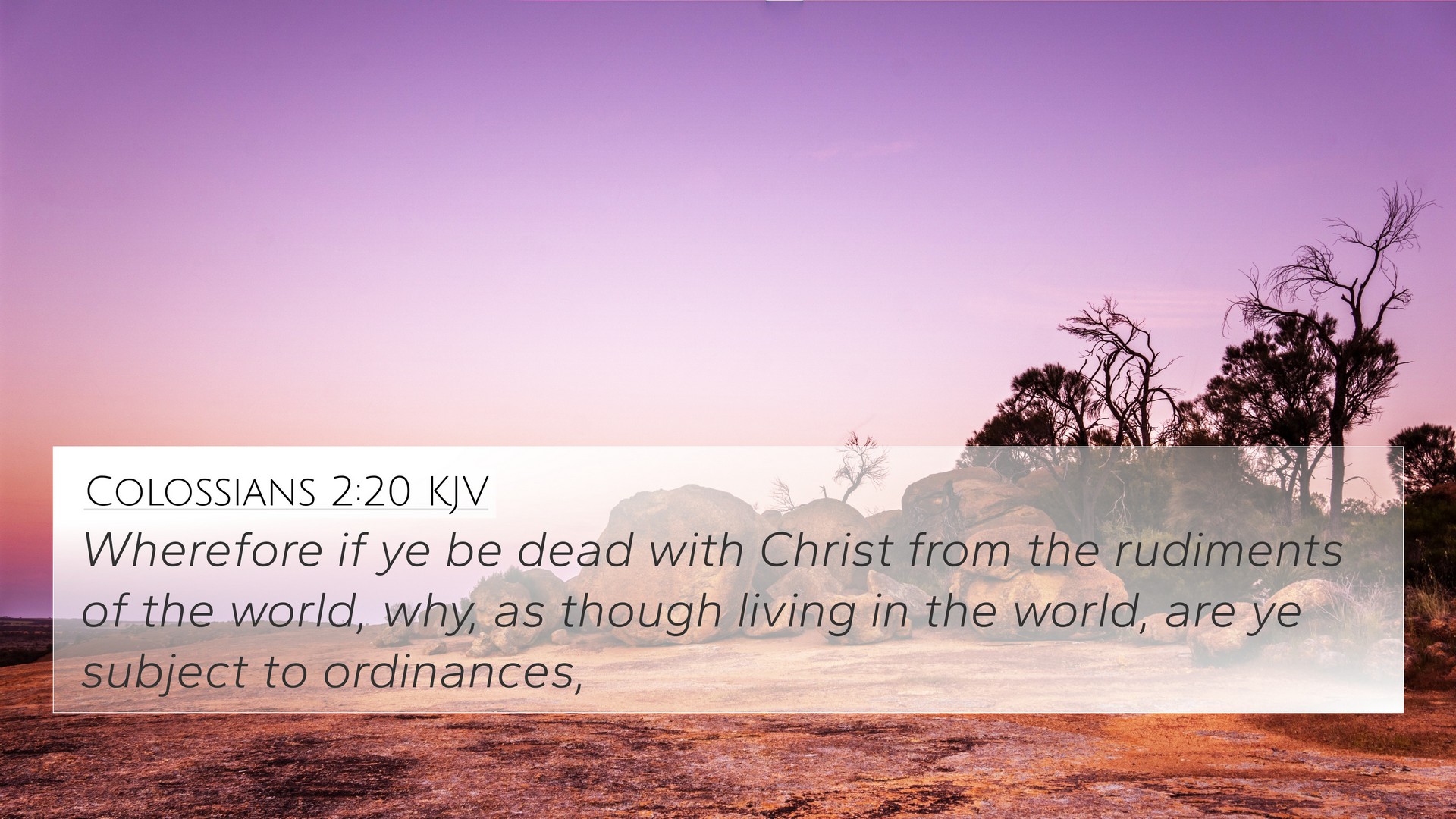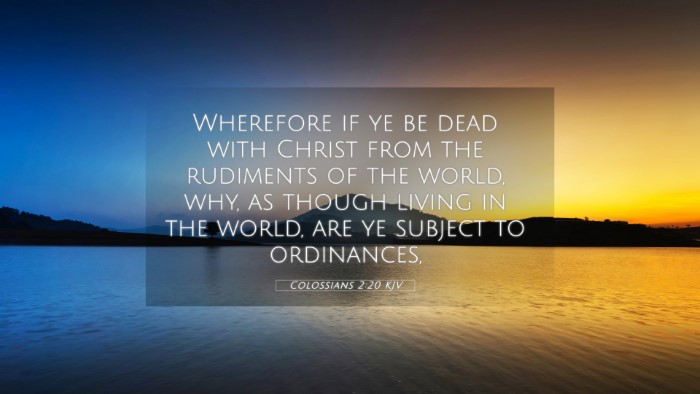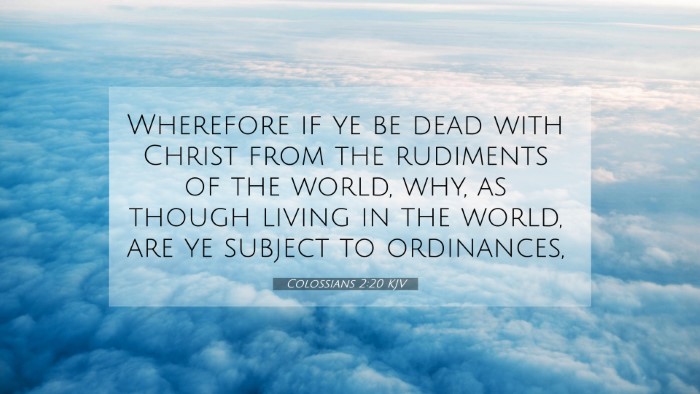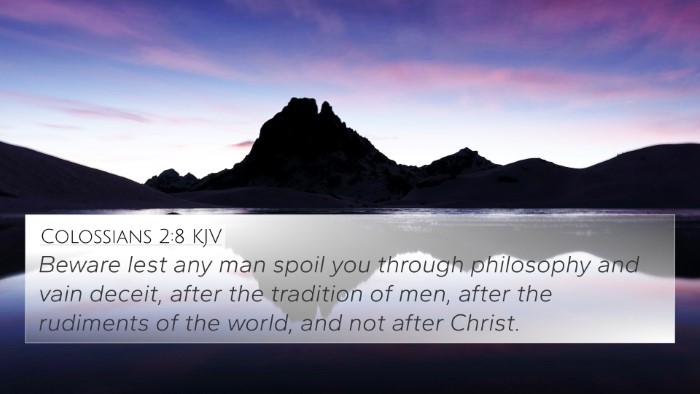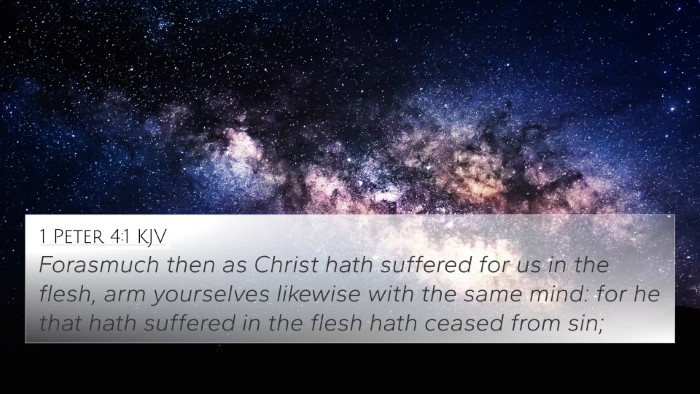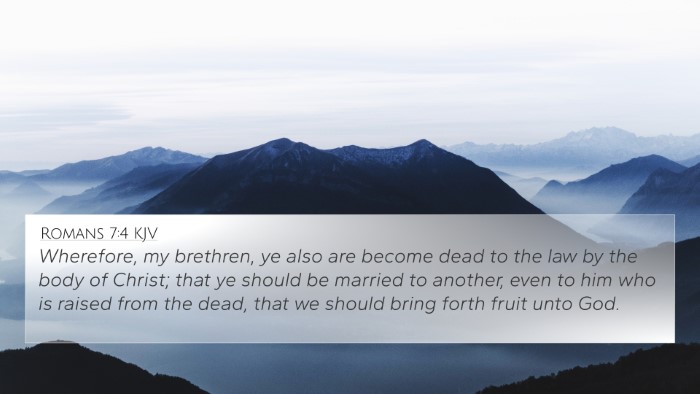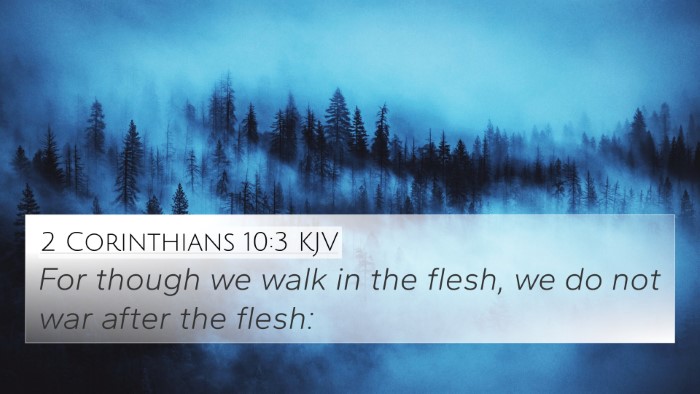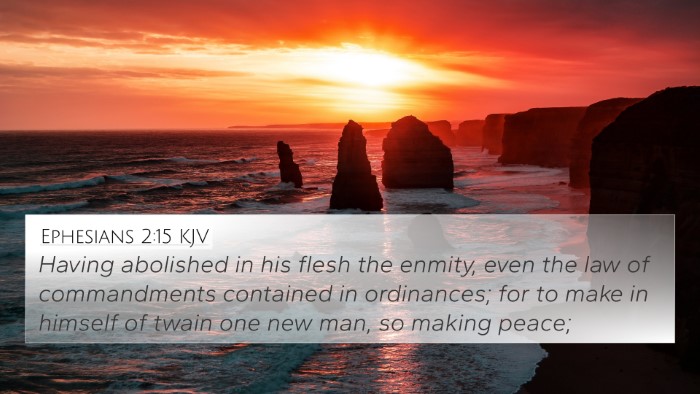Understanding Colossians 2:20
Colossians 2:20 states: "If you have died with Christ to the elementary principles of the world, why, as if you were living in the world, do you submit yourself to decrees such as,". This verse delves into the relationship between the believer’s new life in Christ and their prior existence under worldly principles.
In this analysis, we will explore various public domain commentaries to provide a comprehensive understanding of this verse, along with relevant cross-references that reinforce its themes.
Verse Analysis
Colossians 2:20 speaks to the transformative experience of believers when they accept Christ. The "elementary principles of the world" refer to the basic, often legalistic, rules and traditions that governed life before embracing the freedom found in Christ.
- Matthew Henry: Henry emphasizes that being dead with Christ signifies a complete separation from worldly standards and regulations. He encourages believers to recognize that their identity is now in Christ, rendering previous worldly decrees irrelevant.
- Albert Barnes: Barnes offers insight into the phrase "died with Christ," suggesting it denotes the believer's crucifixion with Christ, as discussed in Romans 6. This union with Christ means that the believer operates in a new spiritual realm, free from the bondage of worldly rules.
- Adam Clarke: Clarke interprets this verse as a call to reject external religious requirements that do not align with the grace of Christ. He warns against the dangers of reverting to a system of rules that Christ abolished through His sacrifice.
Bible Cross-References
To better understand Colossians 2:20, let’s examine pertinent cross-references that illustrate the interconnectedness of Scripture. Here are some key verses to consider:
- Romans 6:6: "Knowing this, that our old man is crucified with him, that the body of sin might be destroyed..." - showing the believer's death to sin.
- Galatians 2:20: "I have been crucified with Christ; it is no longer I who live, but Christ lives in me..." - aligning with the concept of new life in Christ.
- Ephesians 2:1-3: This passage discusses how believers were once dead in trespasses and sins, highlighting the need for a new identity through Christ.
- 1 John 2:15-17: Encouraging believers not to love the world or its systems, emphasizing a separation from worldly desires.
- Colossians 3:1-3: Encourages believers to set their minds on things above, supporting the call to live according to their new identity.
- Galatians 5:1: "Stand fast therefore in the liberty by which Christ has made us free..." - highlighting the freedom from legalism provided by Christ.
- Hebrews 9:14: Discusses the cleansing of conscience from dead works, reinforcing the idea of liberation from previous obligations.
Connections to Other Scriptures
The message of Colossians 2:20 resonates with various other scriptures and themes throughout the Bible. These connections provide a richer understanding and context for its significance:
- Identifying connections between Old and New Testament: The concept of freedom from law is deeply embedded in both the teachings of Jesus and the Pauline epistles.
- Comparative study of Pauline epistles: Similar themes can be found in Romans, Galatians, and Ephesians, showcasing Paul's consistent emphasis on liberation through faith.
- Cross-referenced themes in the Bible: Many passages discuss the transition from dead works to living faith, allowing for a deeper understanding of new life in Christ.
Practical Applications
As contemporary believers reflect upon Colossians 2:20, they are encouraged to examine their lives and consider what worldly principles or traditions they may still be adhering to. By understanding their identity in Christ, they can embrace the freedom He provides.
This call to reflection aligns with the need for regular Bible study and cross-referencing to deepen one’s understanding of Scripture. Using tools such as a bible concordance or a bible cross-reference guide can enhance this process, allowing for a comprehensive study of how verses interrelate.
Conclusion
In conclusion, Colossians 2:20 serves as a pivotal reminder of the transformation that takes place in the life of a believer. By dying with Christ, one is called to reject worldly principles and embrace a new identity rooted in faith. Cross-referencing related Scriptures strengthens this understanding, providing a robust framework for living out one’s faith in freedom and grace.
